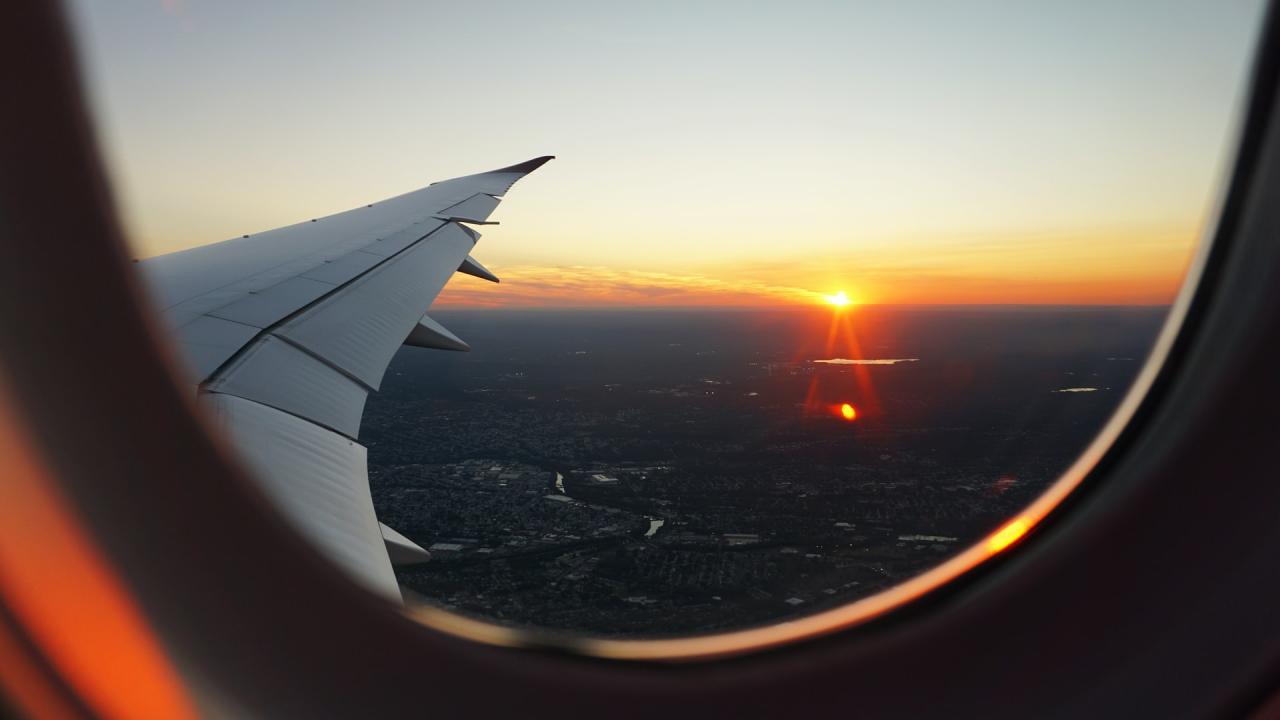According to various researchers, only 5-10% of the world’s population flies yearly. However, things are evolving. There had been 3.7 billion people flying around the world in 2016, according to estimates from the International Civil Aviation Organization (ICAO), and each year from 2009 has seen record-breaking numbers. The International Air Transport Association (IATA) forecasts that there will be a growth of 7.2B passengers by 2035. This is a good reason to think about the environmental damage that flying causes.
Carbon-Dioxide Emissions
Numerous estimates place aviation’s contribution to worldwide CO2 emissions at over 2%. However, professor at the universities of Lund and Linnaeus in Sweden and co-editor of the work ‘Climate Change and Aviation: Issues, Challenges, and Solutions,’ Professor Stefan Gössling asserts, “That’s only half the reality. Additional warming impacts are caused by other aviation pollutants including water vapor, particles, contrails, nitrogen oxides (NOx),and cirrus changes. Manufacturing impacts within the aircraft industry significantly increase the industry’s entire footprint in addition to emissions produced only during flight. According to Gössling, the aviation industry contributes twice as much to global warming as CO2 alone, with a minimum total contribution of 5%. Chris Goater, a spokesman for IATA, said that the science supporting this purported “radiative forcing” is not supported by scientific evidence.
Even if the final 2% emission figure is accepted, even if 3% of the global population traveled by air last year, this minority still contributed significantly to global emissions. Since aircrafts consume so much energy, there is not a single other human activity that produces as many emissions over as little time as it does, according to Gössling. This is where the WWF carbon footprint calculator comes in handy. Even a devoted environmentalist who consumes vegan food, heats their home with solar energy, commutes by bicycle, but still flies occasionally, wouldn’t appear to be very green.
Limitations To New Technology
Many businesses are under constant pressure to find green solutions as understanding about the urgency to lower individual and societal carbon footprints to avert climate catastrophe rises. The aviation industry also made commitments; 191 countries signed a UN agreement in October 2016. The aviation industry will also be working towards the goalof reducing carbon emissions from aviation worldwide to levels seen in 2020 by the year 2035. The agreement also sets a goal to reduce its carbon emissions by 50% from 2005 levels by the year 2050.
According to Goater, four methods are available by which we can achieve this goal:
- Through short-term carbon offsetting.
- The ongoing development of efficient aircraft.
- Increased investment in renewable fuels, such as biofuels.
- Through higher route performance.
He also highlighted that many commercial flights now use sustainable fuels, even though the first one was less than ten years old.
Final Thoughts
What should be done, then? Gössling only sees one possible answer. “Do people really have to fly that much, or should we blame the industry for the volume?” He disputes. The industry, he claims, not only artificially lowers the cost of airline tickets but also encourages a lifestyle. Gössling claims that airline advertising portrays you as joining a club of youthful, urban frequent travelers who travel to different cities at cheaper rates. However, Goater believes that it is both impractical and out-of-date to set restrictions on who can travel by air and when.
He says, “I think there has been a long-standing understanding among the mainstream that reducing emissions must be coupled with giving people the option to fly. People from one region of the globe shouldn’t act as if those opportunities aren’t available to those from other parts of the world.” Instead of prosperity based on unrelenting consumption, we need one that is founded on true wealth of shared vision and community. The aviation industry serves as a reminder of the very consumption we must abandon.

